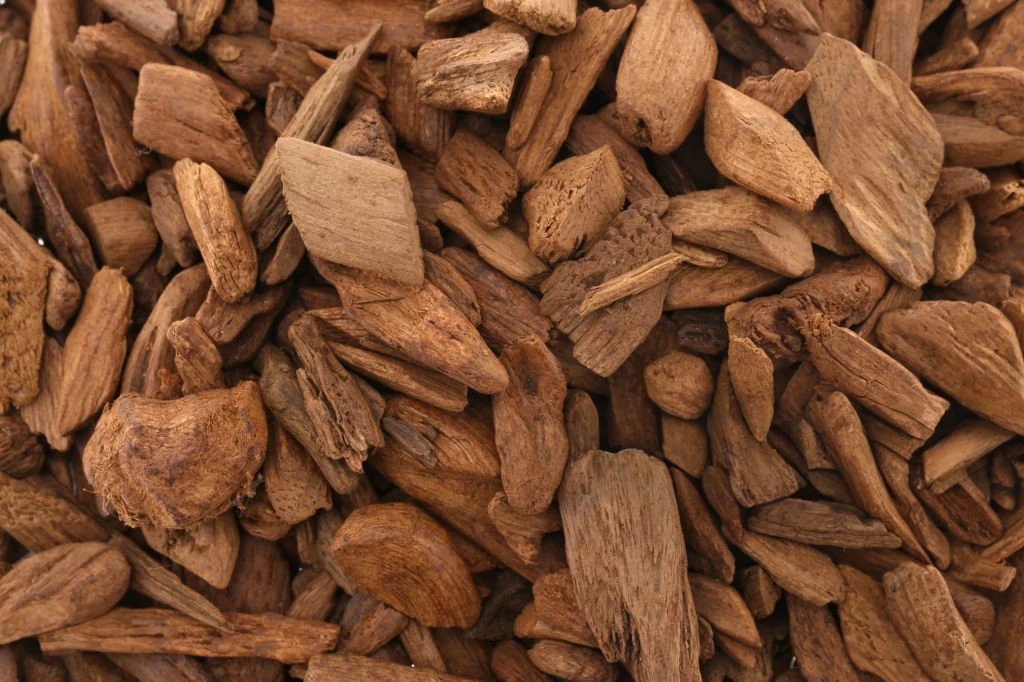Our Products
The Resinous Heartwood of the Gods

Agarwood, often referred to as "wood of the gods," is a rare and highly valuable aromatic resin that forms in the heartwood of Aquilaria trees when they become infected with a specific type of mold. Revered for centuries across cultures, Agarwood is prized for its deep, complex fragrance and is used extensively in perfumery, traditional medicine, and religious rituals.
Key Characteristics of Agarwood
Agarwood is a natural product of the Aquilaria and Gyrinops species, native to Southeast Asia. The formation of its resin is a defense response to fungal or bacterial infections, making it a rare and precious material.
- Botanical Family: Thymelaeaceae, consisting of fast-growing tropical trees found in countries such as India, Sri Lanka, Thailand, Cambodia, Vietnam, and Indonesia.
- Physical Characteristics: Healthy Aquilaria trees have light-colored, odorless wood. Only when the tree is infected does it develop the dark, resin-rich heartwood known as Agarwood. The infected wood is dense, aromatic, and dark brown to black in color.
- Fragrance Profile: Rich, woody, and complex with sweet, balsamic, and musky undertones. Its scent is considered mystical and deeply soothing, making it one of the most sought-after natural fragrances in the world.
Traditional and Modern Uses
Agarwood has a long history in spiritual, medicinal, and luxury traditions, from ancient Chinese and Ayurvedic medicine to the high-end fragrance markets of the Middle East and Europe.
Culinary and Aromatic Applications
While rarely used in cuisine, Agarwood is a cornerstone of luxury incense and traditional aromatics. It is burned as wood chips or distilled into oil (called Oudh or Oud) for perfumery. Oudh oil is a key component in many high-end perfumes and attars.
Medicinal and Wellness Properties
In traditional medicine systems like Ayurveda, Unani, and Traditional Chinese Medicine, Agarwood is used to:
- Relieve anxiety and stress
- Promote sleep and relaxation
- Support digestion and respiratory health
- Act as an aphrodisiac and tonic
Its calming and grounding properties also make it a valued ingredient in spiritual and wellness rituals.
Cultural and Spiritual Significance
Agarwood has held sacred status for centuries. It is mentioned in ancient scriptures including the Vedas, the Bible, and Islamic texts. In many Asian cultures, it is used during meditation, prayer, and important life ceremonies.
- In Hinduism and Buddhism, it is burned to purify the air and mind.
- In Islam, Agarwood incense is used in religious gatherings and personal grooming.
- In Japanese Kōdō (the Way of Incense), Agarwood is used in ceremonial practices as a medium for mindfulness and spiritual refinement.
Ecological and Sustainable Considerations
Due to its rarity and high value, Agarwood has been overharvested in the wild, leading to the endangerment of Aquilaria species in some regions. As a result, cultivation and artificial inoculation techniques have been developed to sustainably produce Agarwood.
- Sustainable Practices: Modern Agarwood plantations use microbial inoculation methods to trigger resin formation in a controlled environment, preserving wild populations.
- Environmental Impact: Properly managed Agarwood farming supports biodiversity and provides economic opportunities for rural communities in Southeast Asia.


